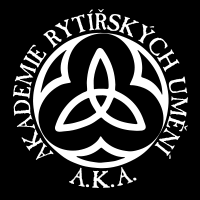
Home - Tucson Wildlife Center
861001344
1998
Tucson, AZ 85731-8320 USA
tucsonwildlife.com
TucsonWildlifeCenter
3067334
Podobné organizace
Wildlife Rehabilitation Center of Northern Utah |
|
Phoenix Wildlife Center Inc |
|
Arizona Wildlife Federation |
|
Park City Hummingbird Hospital |
|
Southwest Wildlife Conservation Center |
Podobné organizace global
WILDLIFE HAVEN REHABILITATION CENTRE INC. |
|
SANDY PINES WILDLIFE CENTRE INCORPORATED |
|
INTERIOR WILDLIFE REHABILITATION SOCIETY |
|
Wildlife SA Incorporated |
|
Pilbara Wildlife Carers Association Inc |
Podobná návštěvnost
Karmel sv. Josefa |
|
Horizont HG 2014, z.ú. |
|
Festival Povaleč z.s. |
|
HOROLEZCI KOLÍNSKA z.s. |
|
spolek Bzuk |
Podobně sociální sítě (10403)
Český svaz juda10663 |
|
Spolek VLČÍ MÁKY10656 |
|
Sdružení pro iLiteraturu, z. s.10593 |
|
A.K.A. akademie rytířských umění - Magisterium pobočný spolek11000 |
|
Dům pro Julii, z. ú.11000 |
Novinky
Patient of the Week 8/22/25 Orphaned Coati Kits Two young coati kits were recently found alone, with no sign of their mother or troop nearby. After the finder unsuccessfully waited to see if the family would return, the siblings were brought to Tucson Wildlife Center for care and evaluation. One of the kits had a tooth abscess that was draining through her cheek, which was promptly treated by our veterinary team. Aside from that injury, both were in good health. While the wound healed, the kits were introduced to a special feeder designed here at TWC years ago and built by one of our volunteers. This feeder holds a bottle in a way that simulates their mother, allowing the babies to nurse with minimal human contact. This invention has helped raise many young animals at our Center—including orphaned javelinas, bobcats, and now coatis—and remains one of the best tools we have for preventing human imprinting in nursing wildlife. Now that the wound has fully healed, the siblings are being raised alongside other coatis their age. By limiting human interaction and growing up in the company of their own kind, these youngsters will have the best chance to develop the skills they need to thrive once released back into the wild. Fun facts: As omnivores, coatis eat fruits, seeds, insects, and small animals, dispersing seeds and acting as “gardeners of the Sonoran Desert.” Their highly flexible ankles—a trait shared with other members of the Procyonidae family, such as raccoons—allow them to descend trees headfirst and maneuver efficiently while foraging. If you would like to help patients like these coati kits, click this link to donate, https://give-usa.keela.co/twc-donation-form. Another way you can contribute is to visit our “wish list” on Amazon by using the following ink, https://www.amazon.com/hz/wishlist/ls/1Z0GXJXQ5KICS/ref=hz_ls_biz_ex?pldnSite=1 or on Chewy at https://www.chewy.com/g/tucson-wildlife-center_b137699594#wish-list&wishlistsortby=DEFAULT. We appreciate it, as will all the wild animals in our care! #tucsonwildlifecenter#wildliferehabber#tucsonnativewildlife#tucsonanimals#AZnativeanimals#wildliferehabilitation (fb)
Patient of the Week 8/15/25 Orphaned Flycatchers Recently, Tucson Wildlife Center admitted two orphaned flycatchers — one nestling (left) and one fledgling (right)—each found alone on the ground in separate locations. While neither bird was injured, both were dehydrated. The younger nestling required time in an incubator to stabilize its body temperature before it could safely join the older bird. Once introduced, something remarkable happened: the fledgling almost immediately began acting as a foster parent, offering mealworms to the younger bird (see video). This arrangement benefits both birds—the nestling receives care and social interaction from a member of its own species, while the fledgling gains valuable social experience. Most importantly, being raised together helps both birds recognize and identify with their species, an essential step in ensuring they remain wild and are prepared for release. When they are old enough and strong enough to survive on their own, both flycatchers will be released at the same time. While they will start their new lives together, wild flycatchers are solitary once independent and do not stay in pairs. After release, each will go on to establish its own territory and follow the seasonal movements typical of its species, but the skills they have learned together will help them thrive in the wild. If you would like to help patients like these flycatchers, click this link to donate, https://give-usa.keela.co/twc-donation-form. Another way you can contribute is to visit our “wish list” on Amazon by using the following ink, https://www.amazon.com/hz/wishlist/ls/1Z0GXJXQ5KICS/ref=hz_ls_biz_ex?pldnSite=1 or on Chewy at https://www.chewy.com/g/tucson-wildlife-center_b137699594#wish-list&wishlistsortby=DEFAULT. We appreciate it, as will all the wild animals in our care! #tucsonwildlifecenter#wildliferehabber#tucsonnativewildlife#tucsonanimals#AZnativeanimals#wildliferehabilitation (fb)

Poslední komentáře
Incredible work being done at Tucson Wildlife Center! Thank you for giving these precious animals a second chance at life. ❤️🦙 #KeepTucsonWilddetail |
|
Just made my donation to support the amazing efforts at Tucson Wildlife Center! Every little bit helps protect our furry friends. 🐾💚 #WildlifeRescuedetail |
Poslední diskuze
What are some effective strategies we can implement to raise awareness about habitat protection and coexistence with wildlife in our community?Odpovědí: 3, Naposledy před 1 den detail |
|
How can we engage more volunteers and foster long-term support for wildlife rehabilitation efforts at Tucson Wildlife Center?Odpovědí: 3, Naposledy před 1 den detail |
V okolí
31
116
4.5
Tucson
O společnosti
- 520, D30, D34 -
Our Mission Tucson Wildlife Center is dedicated to the rescue emergency medical care and rehabilitation of sick injured and orphaned wildlife before return to the wild while promoting education habitat protection and coexistence with wildlife. We are Southern Arizonas only stateoftheart wildlife hospital operating 247 365 days a year. We are dedicated to the rescue emergency medical care and rehabilitation of Southern Arizonas sick injured and orphaned wildlife before return to the wild. Help us KEEP TUCSON WILD With a minimum 25 Donation we will send you a complementary KEEP TUCSON WILD sticker as a thank you.
Ochrana/Ochrana volně žijících zvířat Přírodní rezervace/Zvířecí útulek























